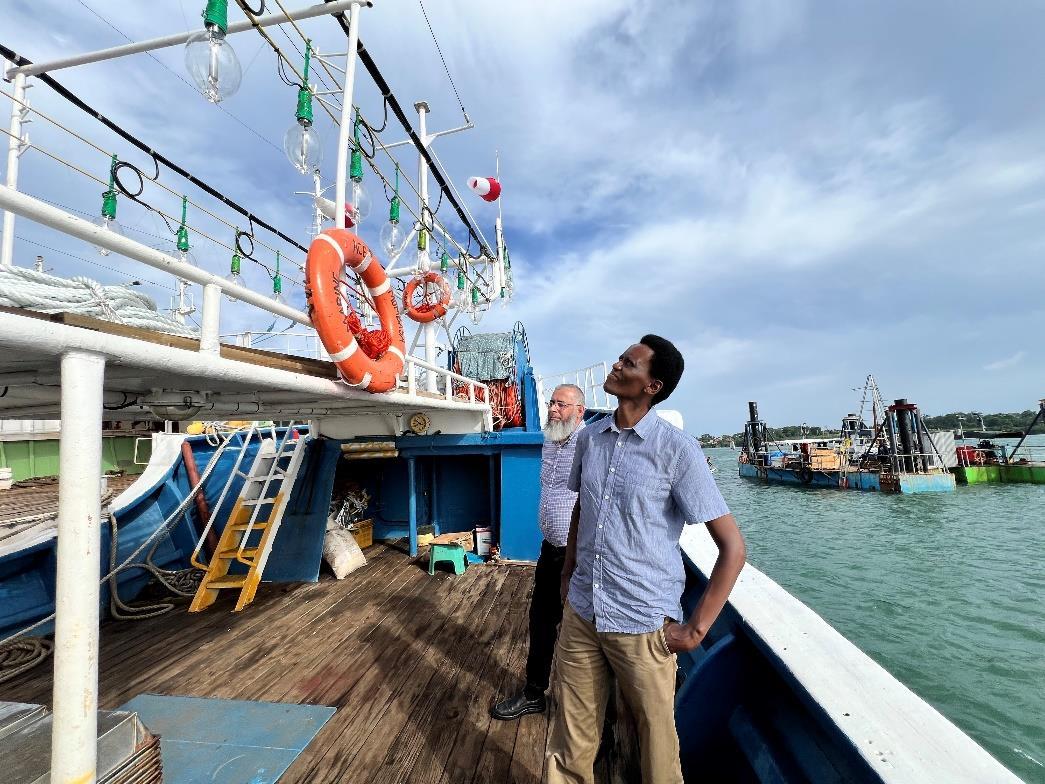






Anchored in Opportunity: How Two Boats Are Recharting Lamu’s Fishing Future
In the turquoise waters off Lamu’s coast, a quiet transformation is beginning not with fanfare, but with two mid-sized fishing vessels and a bold vision to rewrite the story of artisanal fishing in Kenya.
For decades, Lamu’s fishermen have relied on small canoes and seasonal tides, constrained to reef fishing for just a few months each year. But with the arrival of Diamond Seafood Kenya Ltd (DSF) and support from SUED’s seed fund, the tide is expected to turn—literally and figuratively.

In early 2025, DSF acquired two mid-sized commercial fishing vessels designed for deep-sea crab and squid harvesting. These boats, equipped for pot and jigging methods, are expected to venture beyond the reefs unlocking fishing grounds previously inaccessible to local crews.
Local fishermen will be trained to operate these vessels sustainably, extending their fishing season from four months to nearly ten months annually. This shift is anticipated to provide stable employment and a more secure livelihood.
Although the processing facility is still in planning, DSF has begun engaging with Beach Management Units (BMUs) and local fisherfolk offering training and in future will purchase
catches directly and supply flake ice to preserve quality. These efforts are expected to result in higher prices, reduced spoilage, and renewed confidence among Lamu’s fishing communities.
The vessels will use low-impact techniques pot fishing for crabs and jigging for squid minimizing bycatch and protecting marine habitats. DSF’s commitment to climate resilience includes solar-powered infrastructure, rainwater harvesting, and mangrove restoration along the shoreline.
According to SUED’s climate screening, the project is considered a model for sustainable blue economy development, balancing commercial viability with ecological stewardship.
While still in its early stages, the project is expected to create 45 direct jobs and engage over 2,500 artisanal fishermen. With plans for a full processing facility, ice plant, and cold storage underway, DSF aims to scale operations and process over 500 metric tonnes annually in the next five years.
The anticipated ripple effects include increased incomes, year-round employment, and a growing ecosystem of skilled seamen, processors, and suppliers.
Lamu’s story offers a blueprint for coastal municipalities: begin with strategic investment in vessels and training, build trust with local fisherfolk, and scale infrastructure as capacity grows. It’s a phased approach but one that centers community, climate, and commerce.
As DSF’s Managing Director Mohamed Khizer Ayub notes, the initiative represents an investment not just in equipment, but in people, place, and potential.